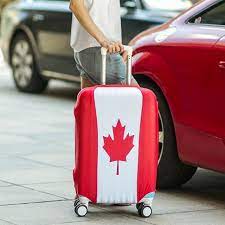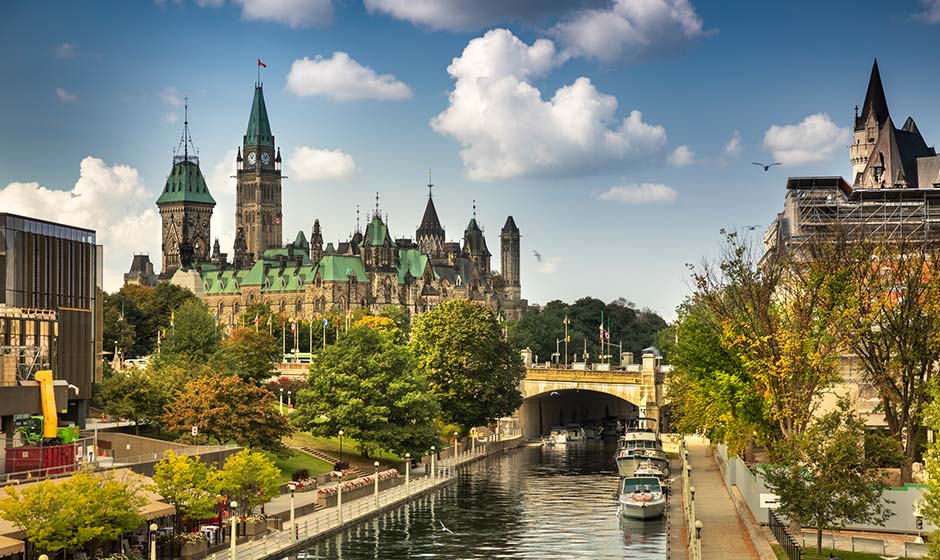The Ultimate Guide to Working in Canada: If you’re considering working in Canada, you’ve probably looked into the different requirements and paperwork that need to be fulfilled in order to do so.
Advertisements
While there are plenty of online resources available to provide information on the topic, it can be hard to find a single source that compiles everything you need to know in one place.
Luckily, this guide will provide you with all the information you need to start working in Canada, from the specific paperwork requirements to what kind of job options are available and how to get started applying for jobs from within Canada, no matter where you live now.
READ ALSO Work And Study In Australia
A Basic Overview

There are a lot of factors that go into determining whether you can move to Canada. If you’re thinking about moving here for work, here’s what you need to know. First, the Canadian government wants to make sure you’re not going to end up on welfare or take away jobs from Canadians.
Advertisements
In order to get approved for residency, you’ll have to show that you have enough money saved up – at least $10,000 CAD – or a job offer from an employer who is willing to sponsor your application.
You’ll also need a clean criminal record and be able to pass the test for English language proficiency (though many people do learn how before they arrive).
What Should I Know About Working In Canada?

A CIC news release indicates that all foreign nationals who are working in Canada must have a valid work permit issued by CIC.
A Canadian employer hiring an individual who is not a Canadian citizen or a permanent resident cannot employ them until they have been granted a work permit by CIC. The individual also needs to apply for a Social Insurance Number (SIN).
The SIN allows employers to report income taxes deducted from employees’ wages for provincial and federal tax purposes.
Employers may request the SIN of their new employee at the time of offer of employment or as soon as possible after being hired.
As soon as the employee receives their SIN, they should provide it to their employer so they can complete a Record of Employment form. The following information should be included on the ROE: Employee name, address, phone number; Position held; Date started work; End date of employment; Days worked per week; Total hours worked per week. All this information will assist with calculating payroll deductions such as income tax deductions and Canada Pension Plan contributions.
Do I Need A Work Permit?
Generally speaking, if you’re an American citizen and you want to work as a freelancer or contractor for a Canadian company (or any foreign business), your employer will need to apply for an Authorization To Work (also known as a work permit).
However, there are exceptions. If you’re travelling for pleasure—and you aren’t planning on earning money while in Canada—you won’t need one.
And many Canadians have spouses who live in the United States who they’re visiting temporarily. In this case, they can stay with their spouse without a work permit so long as they’re not doing anything that would be considered gainful employment.
Additionally, some types of U.S. citizens might not need to obtain a work permit at all if they meet certain qualifications-these include NAFTA professionals, academic visitors, and cultural exchange participants.
Do I Need To Learn English Before Moving to Canada?

One of your biggest concerns before moving abroad is probably learning a new language. You’ll be pleased to hear that English is one of Canada’s two official languages.
However, you should know that although most Canadians speak English, there are still many who speak French (7 million).
Still, it’s no problem for you; both English and French are official languages here. The vast majority of the population speaks English with fluency, but some people might not understand certain idioms or expressions that we use in America.
So don’t worry if you can’t communicate effectively when you first arrive—most people will try their best to help you out. And if they don’t understand what you mean, they can find someone else who does!
How Will My Job Search Go?

If you’re working on your resume from outside of Canada, you may be wondering how much work you’ll have to do when it comes time to find a job.
While job opportunities are relatively high for skilled workers from around the world (at least compared with other developed countries), it is still important that your resume highlights that you have a number of transferable skills that can apply across all industries.
In order to maximize your chances of securing a competitive position, consider including some of these skill sets: – Programming Languages – Geographic Information Systems/Geographic Information Science/Cartography – GIS Data Modeling and Design – Geomatics Engineering – Land Surveying Techniques
– Building Inspection Techniques
Should I Move Immediately Or Wait Until I Have A Job?
You can apply for your work permit once you have a job offer. But there are exceptions, so it’s best to check with your immigration representative before you make a move.
Your representative can guide you on how best to proceed with your application. Some immigrants prefer not to leave their home country until they have their work permit secured.
They will find out whether or not they were granted the work permit while still living abroad. If they were successful, then the family may be able to wait until then to relocate to Canada.
For others, waiting is too difficult; either because of personal reasons or because the Canadian company will only wait a certain amount of time before hiring someone else.
In these cases, the person may decide that moving immediately is best for them so that they don’t lose their chance at securing employment in Canada.
Help! My Permanent Residence Card Expired… Now What?
Your permanent residence card (otherwise known as a PR Card) will expire ten years after you receive it. Keep track of its expiration date—this is very important.
If your card has expired but you haven’t yet applied for citizenship, you’ll need to renew your PR Card before applying for citizenship.
You can apply for renewal here. Go through these steps first before reapplying for Canadian citizenship. 1. Check if you are eligible for renewal by visiting the Government of Canada website and following the instructions there. 2. Apply for PR Card renewal using this form on the Government of Canada website. 3. Fill out Form IMM 5444E on the Government of Canada website 4.
Is There Anything Else I Should Know Before Moving to Canada?
If you’re coming from a country outside of North America, you’ll need to complete an immigration process (which varies based on your situation).
Citizens of some countries must apply for a temporary visa. Specific requirements vary based on your country of origin; plan ahead so that you can submit your application for a work permit as soon as possible.
But remember that visas and permits are only valid if accompanied by a social insurance number or proof of sufficient funds to live during your stay in Canada. You’ll also need a Canadian passport before entering the country.
You will not be able to apply for permanent residency until after one year of living in the country under one of the other options listed above.
After reading this blog post, you should know that there are many different ways to get permission to work in Canada.
The best option is dependent on your individual circumstances. For example, if you want to move permanently to Canada with a family member who has Canadian citizenship or permanent residency status, then you would want to consider either sponsoring them as your spouse/common-law partner or applying for permanent residence yourself.
On the other hand, if you just want to visit the country temporarily and intend on returning home at the end of your trip, then look into acquiring a visitor visa.
Advertisements


![Working In Australia [Visa Sponsorship for Immigrants] Working In Australia [Visa Sponsorship for Immigrants]](https://listawe.com/wp-content/plugins/contextual-related-posts/default.png)



